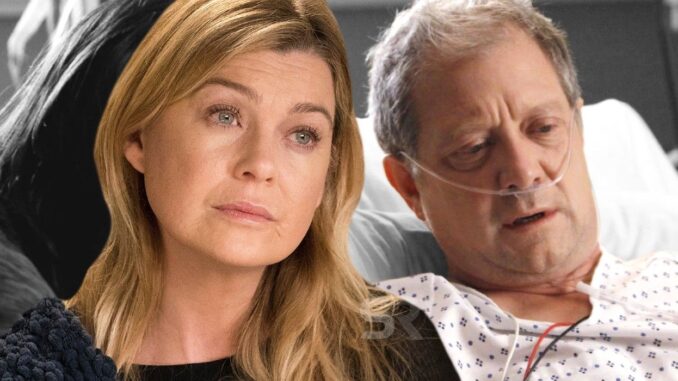
The hushed hum of the cafe, usually a comforting balm, seemed to amplify the silence between Meredith and her friend, Sarah. Sunlight, fractured by the dusty venetian blinds, striped the worn wooden table where their half-empty coffee mugs sat like forgotten monuments. Meredith had been talking, ostensibly, about a documentary she’d watched, her voice a steady, even flow. But then Sarah, with the casual innocence of a well-meaning acquaintance, had asked, "And your family, Meredith? Are they still in Oregon?"
The question hung in the air, a tiny, almost imperceptible tremor in the placid surface of Meredith's composure. For a split second, her eyes, usually a clear, hazel green, seemed to cloud over, losing their focus, fixing on a point beyond the cafe window, into a landscape only she could perceive. It was the moment the old wounds stirred.
Meredith took a slow sip of her now-cool coffee, the bitter tang a sharp counterpoint to the sudden, familiar ache blooming in her chest. "My family," she repeated, her voice a little softer, a little more distant. "My mother and sister, yes. My father…" She paused, and it was in that pause that the dam began to crack.
Talking about her estranged father was not something Meredith did often, or lightly. He was a sealed vault, a forgotten chamber deep within the heart's labyrinth, consciously bricked over years ago. The decision to sever ties had been a conscious act of self-preservation, a painful but necessary surgery. Yet, the scalpel, though precise, could never fully erase the scar. And now, the casual mention, the simple word "father," was like a probing finger against that still-tender tissue.
As she began to speak, initially hesitant, then with a slow, gathering momentum, the transformation was almost visible. Her shoulders, previously relaxed, seemed to draw inward, as if bracing against an invisible blow. A faint flush crept up her neck, a sign of the internal furnace now roaring to life. Her hands, which had been resting calmly on the table, clasped together, fingers intertwining and releasing in a restless rhythm.
"He just… wasn't there," she started, the words simple, almost clinical, yet imbued with a profound weight. But as she delved deeper, the carefully constructed veneer of calm began to crumble. The past wasn't just a narrative; it was a sensory immersion. The abandonment wasn't an abstract concept but the sharp sting of a missed birthday call, the hollow echo of a promise broken, the crushing weight of a child's disappointment. The old wound wasn’t just resurfacing; it was bleeding.
Her voice, initially a steady stream, began to waver, a fragile filament of sound. She spoke of the empty chair at the dinner table, the years of trying to earn an affection that was never freely given, the cold indifference that felt sharper than any shouted word. With each memory dredged up, a fresh wave of emotion washed over her. The bitter tang of regret, the cold ash of resentment, the phantom ache of a love unreceived – these weren't just descriptions; they were visceral sensations. It was as if a long-dormant volcano had suddenly rumbled to life, sending tremors through her carefully constructed world, molten memories bubbling to the surface.
Sarah listened, her expression a mixture of concern and quiet understanding. She saw not just the woman across the table, but the child Meredith had been, bruised and bewildered, now confronting those old ghosts anew. The words Meredith spoke were not just recounting history; they were reliving it. Her lower lip trembled almost imperceptibly, and in her eyes, a shimmer of unshed tears caught the cafe light, reflecting a pain too deep for mere vocal expression.
When she finally finished, the silence that followed was heavier, charged with the residue of unburdened pain. Meredith exhaled slowly, as if releasing a breath she’d held for two decades. She looked utterly drained, the colour subtly leached from her face, her eyes still distant, holding the echo of the storm she’d just weathered.
Old wounds, Meredith understood, were never truly healed in the way a broken bone knits back together. They were more like fault lines, dormant for stretches, but always susceptible to the slightest tremor, always capable of opening up again, raw and exposed. Speaking about her estranged father hadn't magically made the pain disappear; in fact, it had intensified it. But in the act of verbalizing, of bringing the buried anguish into the light, there was also a paradoxical sense of release. The wound may have resurfaced, but perhaps, only by exposing it to the air, could it ever truly begin to scar over, a little more deeply, a little more completely, this time. The conversation ended, but the echo of the old wound, brought to life by a simple question, lingered, a stark reminder of the enduring power of the past.